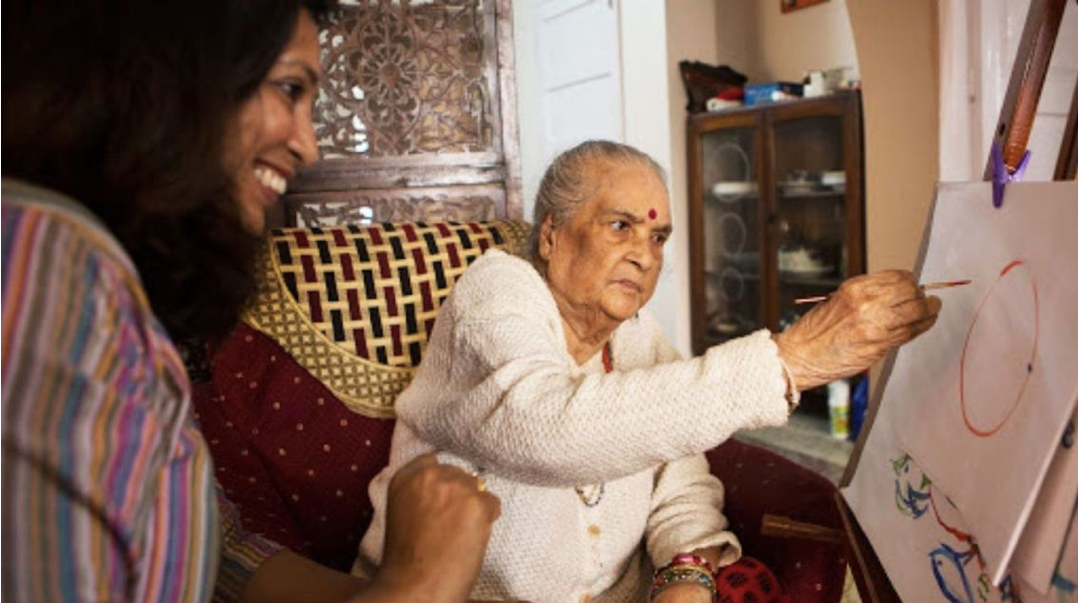Well being, for many, is state of having a sense agency, hope, confidence and self esteem. Well being is perceived in a similar manner by people living with dementia.They wish to enjoy a purposeful life, filled with meaningful activity, comfortable environment and most importantly to feel loved.
Being diagnosed with dementia does not mean that the person has to stop doing activities that they enjoy or their sense of purpose can no longer exist.With appropriate care and support people with dementia can continue to live a life of quality. Since impaired judgement, communication is part and parcel of dementia, it is crucial that person with dementia is provided safe and positive environment to live well with dementia.
However, the reality is that over time as the disease progresses the person with Dementia becomes less capable of managing things independently. It becomes the carer’s responsibility to ascertain the safety of the individual.
Safety
- Removing hazardous items such knife, scissors, stove etc. out of reach
- Locking the doors to ensure the person does not wander out of the house
- Keeping the house free of clutter to facilitate unhindered movement
- Providing grab bars in the bathroom and corridors to help easy movement
- Providing adequate lighting
- Putting warning signs on harmful areas or objects
Communication
- Maintaining good, straight eye contact to ensure their attention is gauged
- Use of proper tone while speaking as the person is more sensitive to the tone rather than the message being conveyed. Avoiding instructional language and tone and opting for conversational manners.
- Using simple language and smaller sentences
- Repeating what has been told again to help facilitate retention as the individual is prone to forgetting what has been said
- Using non-verbal communications such as physical touch, keeping in mind the person’s personal boundaries.
- Providing step by step directions when directing a daily routine task such as bathing, cleaning etc.
- Pay attention and listen more with an open mind. This includes validating the person’s feelings and reality rather than confronting, correcting or neglecting.
Physical Health
- Ensuring adherence to medication with the help of gentle reminders and pill boxes to manage the medicines
- Regular exercise according to one’s ability and health such as regular walks, Yoga etc.
- Maintaining a balanced diet as nutritional deficiencies could further complicate the manifestation of the symptoms.
Managing behavioural symptoms
- Identifying the cause of the agitation and avoiding the trigger. For example, a person may get distressed and agitated after being reminded about a painful memory from the past such as the loss of a loved one. Avoiding confrontation with the memory would ensure the trigger is taken way and hence the behaviour.
- Checking for physical discomfort such as being hungry, too cold or too hot could also cause agitation
- Reassuring the person to help give them relief from anything that could be worrying them
- Planning a routine to structure their day so that sleep and eating patterns are well established thereby avoiding problems with sleeplessness in the night, lack of orientation which further causes confusion and agitation. Also helps in engaging them meaningfully and providing better care and quality of life.
- Ensuring safety and personal comfort before initiating personal hygiene routines. Many individuals take time to adjust to the reality of loss of independence and do not like other helping with personal care. Tell the person what you are going to do, step by step.
- Allowing the person to choose food to their liking so that the motivation to eat continues and the food intake does not become forced
If a person with dementia develops behavioural and psychological symptoms it is important to remember that they are not ‘behaving badly’ and are not to blame. The symptoms may be a direct result of changes in the chemicals of their brain, or be due to a general health problem, such as discomfort caused by hunger, thirst or infection. These symptoms can also be related to the care a person is receiving, their environment or social interactions.
People with dementia want the same things that we all do: to live with comfort and a sense of identity, to feel loved and to enjoy a purposeful life, filled with meaningful activity – good dementia care should support these aspirations to be realized. They need to be assured that the reality they are experiencing is perfectly normal, and accepted. The specific care and support that people with dementia require depends upon the needs of the individual, and may include supporting their physical, psychological, emotional and spiritual needs. ‘Person-centred care’, which focuses on achieving an understanding of the person being supported, their cognitive abilities, as well as their life history, can often bring out the best in people with dementia







